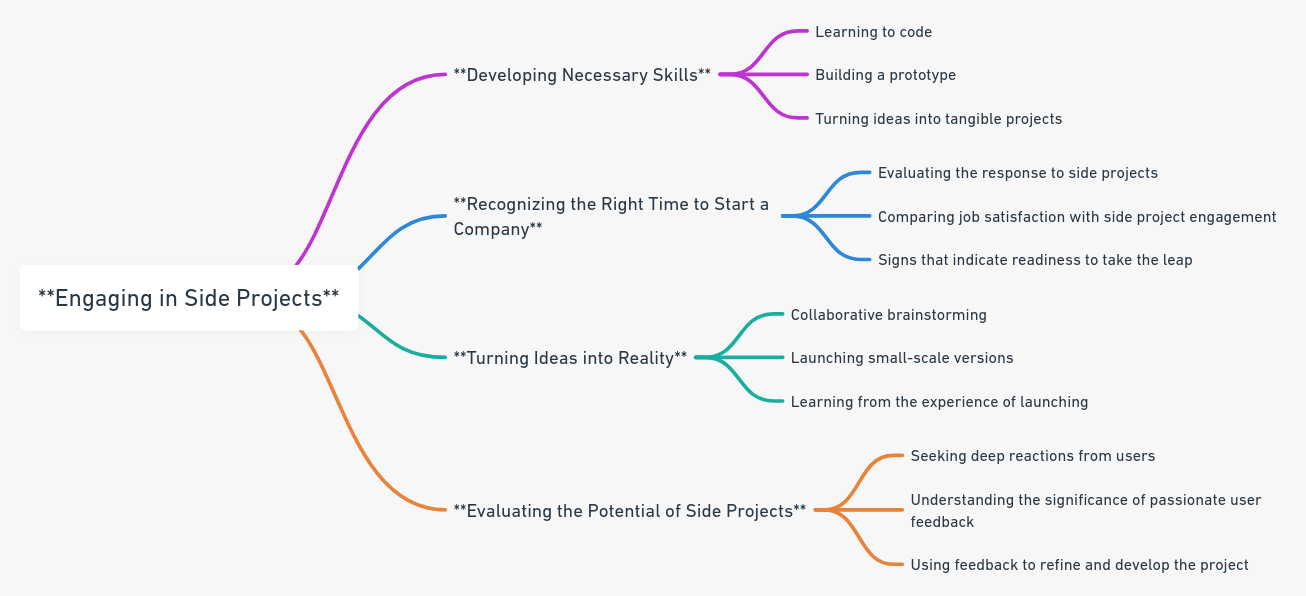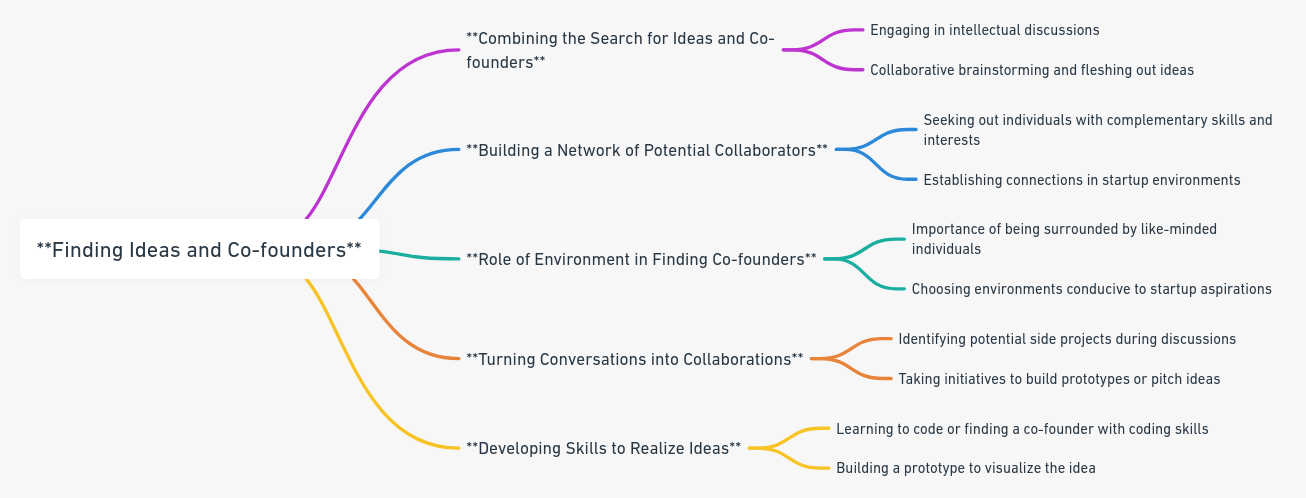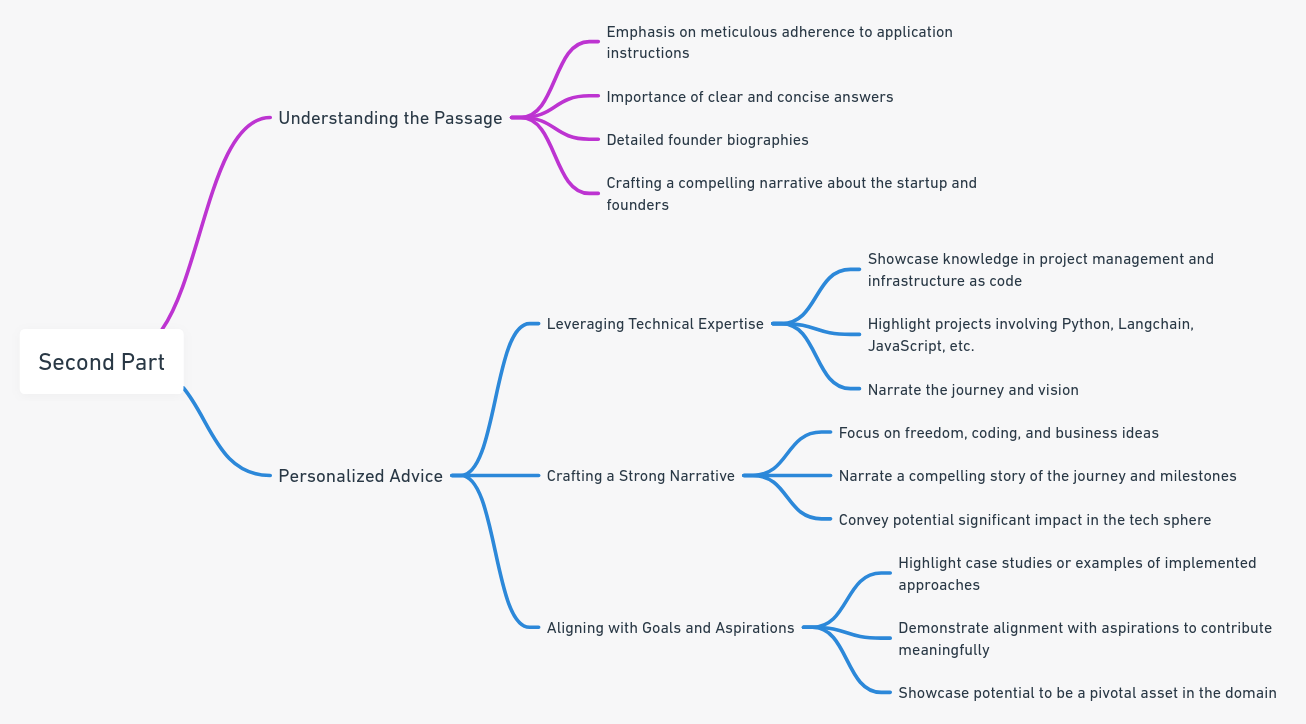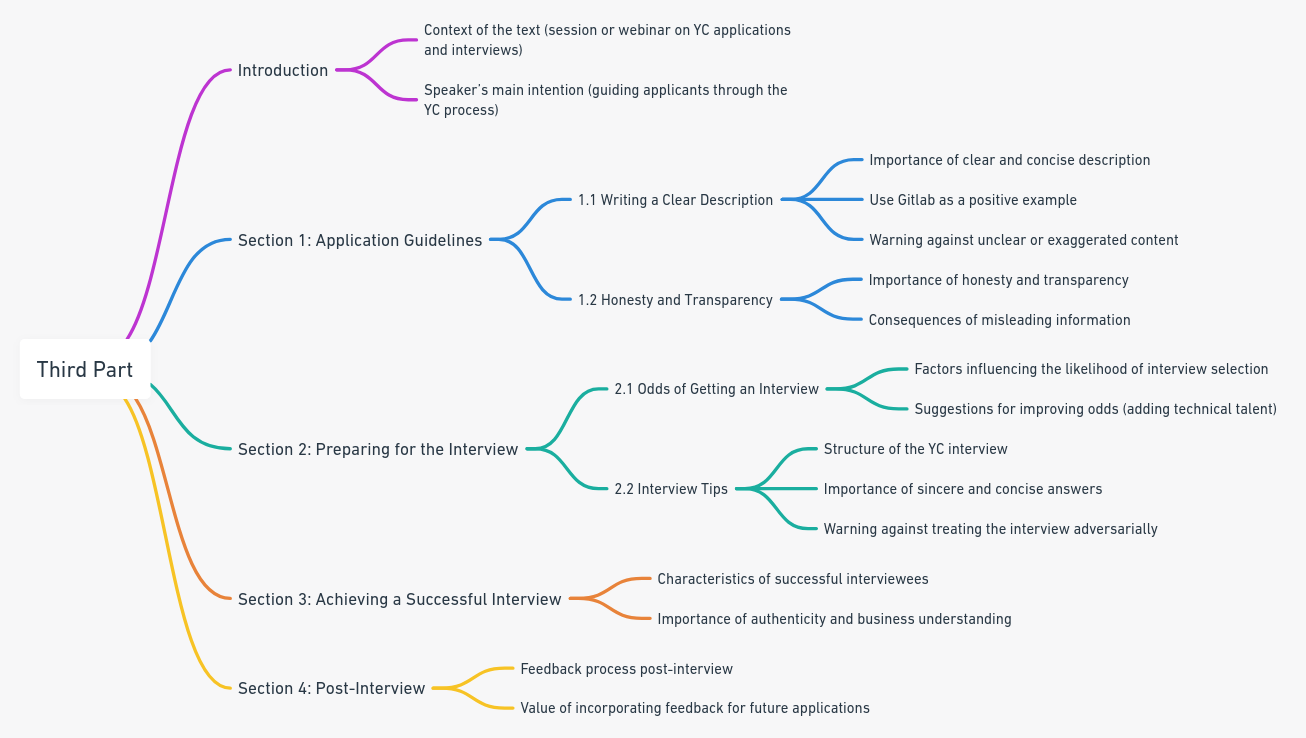Business Venture
In the grand tapestry of startup entrepreneurship, one finds themselves at a junction of various pathways, intricately woven with threads of curiosity, resilience, and pragmatism. I find myself contemplating the essence of startups and entrepreneurship through a lens that spans a spectrum of experiences and realizations, much like the captivating stories and lessons I’ve encountered in my journey with Y Combinator.
Let us venture into this exploration in two substantial parts: discerning the kind of individuals who are cut for the startup world, and preparing oneself for the roller-coaster ride that is entrepreneurship.
Identifying the Potential Startup Founder
In my earnest endeavor as a group partner at YC, I’ve engaged with an astounding array of individuals, each bringing their unique flair to the startup realm. Contrary to the popular narrative illustrated in movies or books, where figures like Mark Zuckerberg or Steve Jobs epitomize the quintessential founder, reality offers a much broader canvas. Yes, being a prodigy in programming or possessing a magnetic personality can be beneficial, but my observations affirm that individuals with varied strengths have flourished in this domain.
The process of identifying potential startup founders is still a puzzle, even after years of working with startups. Traditional markers of success like academic achievement or professional milestones often fall short in predicting a founder’s triumph. The startup world demands a spirit resilient enough to withstand numerous rejections, personal struggles, and an unwavering dedication to one’s product. Thus, resilience emerges as a critical attribute, albeit one that is challenging to gauge at first glance.
The Resilience Factor: A Closer Look
My early days at YC were characterized by a naïve assumption that confidence could be a reliable marker for resilience. However, as I delved deeper, I realized the incongruity of this belief. Many individuals who exhibited a quiet demeanor turned out to be powerhouses of resilience, steering their companies to remarkable heights.
Allow me to share the story of Sajith, the mastermind behind Benchling. Despite initial reservations about his and his partner’s ability to excel in enterprise sales, Sajith demonstrated an exemplary level of resilience, steering Benchling to a value of over $6 billion. His journey, however, is not an isolated one. The startup landscape is adorned with individuals who have displayed remarkable resilience, defying initial perceptions and emerging victorious.

Motivations: The Changing Tides
In my quest to understand the essence of startup resilience, I pondered over the role of motivations. While the discourse often dismisses financial aspirations as a worthy cause to embark on a startup journey, I believe that there are numerous legitimate motivations to start a company. Whether it’s the allure of financial prosperity or a simple curiosity to explore the startup ecosystem, motivations can evolve and mature over time. The key lies in fostering enduring motivations, anchored in a genuine interest in the problem at hand and a harmonious collaboration with one’s team.
Taking the Plunge: Practical Advice
Embarking on a startup journey demands a realistic assessment of one’s tolerance for potential setbacks. I urge you to consider the worst-case scenario and gauge your comfort level with that outcome. Moreover, the learning curve that a startup offers is often underestimated. The multifaceted roles you assume as a founder can provide invaluable insights into your preferences and strengths, potentially paving the way for promising career opportunities.
Nurturing Ideas and Building Connections
As we transition to the latter part of our exploration, let us dwell on the preparatory phase for aspiring entrepreneurs. The inception of a startup is often a fusion of a potent idea and a synergistic collaboration with a co-founder. I encourage you to perceive the process of idea generation and finding a co-founder as interconnected. Engage in stimulating conversations with individuals who resonate with your intellectual curiosity, fostering an environment where ideas can be nurtured and refined.
If you find yourself devoid of such interactions, it might be a sign to revamp your surroundings and immerse yourself in a startup environment, where potential co-founders are aplenty. Once entrenched in this ecosystem, venture into side projects, transforming vague ideas into tangible realities, even if on a small scale.

Engaging in Side Projects
To translate your ideas into reality, equipping yourself with the necessary skills, particularly coding, is essential. As you navigate through this journey, be attentive to your enjoyment in the process, and compare it with your sentiments towards your current job. A burgeoning enthusiasm for side projects, coupled with a fruitful collaboration with potential co-founders, could be an indication that it’s time to take the leap.

Finding Ideas and Co-founders
The journey to becoming a startup founder is characterized by evolving motivations, a realistic assessment of potential outcomes, and a fervent curiosity to delve into the startup world. I implore you to embrace the journey with an open heart, nurturing ideas into reality and fostering connections that could potentially transform your career trajectory. Remember, the voyage is as significant as the destination, and every step you take is a stride towards carving your niche in the startup cosmos.

Reference
Flourish
The Art of Crafting a Successful YC Application: A Dialogue with the Head of Admissions
Hello, dear readers. Today, I want to take you on a journey – a journey towards understanding how to craft a successful application for Y Combinator (YC). Let’s have an intellectual discussion where I share insights garnered from my extensive experience as the head of admissions at YC.
Why Apply to YC?
First, allow me to address the elephant in the room: Why should one even consider applying to YC?
Well, I must say, the application process itself is a crucible that forces you to think critically about your venture. It propels you to address questions such as “What are we building?” or “Who are our competitors?” Sometimes, even, it makes you ponder on the equity split within your team, a conversation that many surprisingly overlook.
Applying to YC isn’t just a mere attempt to secure funding; it’s an exercise that helps you refine your business concept, align your team, and prepare for the journey ahead. If you’re keenly watching this presentation, chances are, YC could be the ideal platform to catapult your venture to greater heights.
Creating Luck
In this unpredictable journey of entrepreneurship, I strongly believe in creating one’s luck. It’s a meta-principle that extends beyond the application process. Great founders create opportunities for luck to find them, constantly setting themselves up for potential fortunate events. Applying to YC is one such avenue where luck might just cross your path.

Dispelling the Myths: Reasons Not to Apply
Now, I would like to debunk some common misconceptions that prevent potential applicants from taking the plunge.
I am too early or too far along: YC welcomes a diverse range of startups, from those in their infancy to those already generating substantial revenues.
I am too experienced
Experience is no barrier. Even seasoned entrepreneurs find value in joining YC.
YC won’t understand my unique business: YC has funded a vast array of businesses, sometimes even those perceived as ‘crazy’ or ‘weird’.
Relocation to Bay Area
While the program runs for three months in the Bay Area, relocation is not a permanent requirement.
Applying to YC: A Guide to a Seamless Application
As you navigate the application process, here are a few pointers to guide you:
Complete the Application Form
It might seem trivial, but a completed application form reflects your professionalism and serious intent.
Founder Video
Make sure to create a concise, one-minute video featuring all the founders. Adhering to this guideline speaks volumes about your team’s cohesion and commitment.
Clarity of Thought
A well-articulated application, clear in its presentation and devoid of jargon, can make a significant difference. Remember, clarity precedes persuasion.
As we traverse this dialogue, I invite you to embrace the potential that lies within the YC application process. It is not just a gateway to funding, but a platform for refinement, growth, and perhaps, a touch of luck. So, dare to take the leap, and who knows, fortune might just favor the brave.

A Peek into Successful Applications
Clarity and Conciseness: Companies like Remix and Tetra Science showcased their offerings in simple yet comprehensive terms, avoiding jargon and directly addressing the core questions.
Highlighting Impressive Facts: GitLab, for instance, highlighted notable achievements right at the start, grabbing attention and building credibility.
Engaging Storytelling: Great applications narrate a story, revealing who is on the team, what they are working on, their motivation, achievements so far, and why they believe in their success.
Tips for Prospective Applicants
Technical Expertise within the Team: Ensuring that the team includes someone with the skills to bring the concept to fruition.
Evidence of Product Realization
Even if the team lacks an established technical background, showing proof of a built prototype or a product brought to market can be convincing.
Transparency about Product Development: Being clear and honest about who is involved in the creation of the product can work in your favor.
Enhancing Your Chances for an Interview
Following Directions Well: A well-written application and adherence to video requirements can increase the odds of securing an interview.
Demonstrated Commitment
Showing evidence of genuine interest and commitment towards the project.
Reapplying Showcases Progress: A significant number of companies that were accepted had applied before, demonstrating progress in their subsequent applications.
Debunking the Networking Myth
No Network Required: YC was designed to help individuals without networks to start startups and secure funding.
Avoid Predatory Advisors: Be cautious of individuals offering dubious assistance in breaking into the industry.
A Glimpse into the Interview Process
Nature of the Interview: Interviews last for 10 minutes, expecting to involve the full founding team, with the discussion focusing on understanding the basics of the business.
Successful Interviews
Founders demonstrate a mastery of their business, providing clear and honest answers, displaying self-awareness about the challenges and complexities of their business.
Feedback and Reapplication
Constructive feedback is provided to unsuccessful applicants, encouraging them to address the issues and reapply with improvements.

Conclusion
Straightforward Application Process: The process is designed to be transparent and straightforward, encouraging applicants to tell a clear story.
Open Door Policy
Encouraging applicants to take a chance and apply, fostering a spirit of openness and opportunity.
Final Thoughts
Drawing parallels with Richard Feynman’s approach to communication, the YC application process calls for clarity, honesty, and a deep understanding of one’s business project. By adhering to these principles, not only can one enhance their chances of success with YC but also foster the essential skills needed to flourish as a founder.